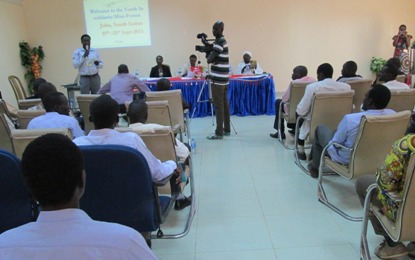South Sudan vows to end youth unemployment
July 18, 2014 (JUBA) – The government of South Sudan has urged private and non-government organisations to employ at least 80% of South Sudanese nationals at all levels of the country.

“The practice that is happening in some of the organisations is that they employ many messengers, drivers and say we have already fulfilled the 80%,” said Lotara.
“But if you go and make those analyses, you will find that at the managerial level, it might be 1% or none. And that is what is happening. But we are working out things that such kind of things must stop. It is a real fight,” she added.
Although South Sudan has no data on unemployment rates in the country, more than 50% of its youth have reportedly not acquired basic skills and education.
Lotara, however, said her ministry was concerned that United Nations agencies allegedly preferred “experts” to South Sudanese nationals.
“We [South Sudanese] have qualified people. If they want a degree holder, we have them. If they want PhD, we have. I don’t know what experts they are looking for,” she said.
In the offing, Lotara disclosed, was a proposed labor bill that will ensure that government officials are included on selection for board for enrolling employees, NGOs, and other private sectors.
Josephine Napwon, the deputy minister of culture and youth, cited inability by poor parents to educate their children as a huge challenge.
She said the government was working to ensure all girls, with 6% cent enrollment in primary school and an overwhelming secondary dropout o 20%, becomes a priority.
“I grew up in boarding school and I really think it is where girls are well take care of,” Napwon said.
Forced marriage among girls and recruitment of males into armed groups were cited by officials as some of the key challenges facing the youth fraternity in South Sudan.
(ST)
